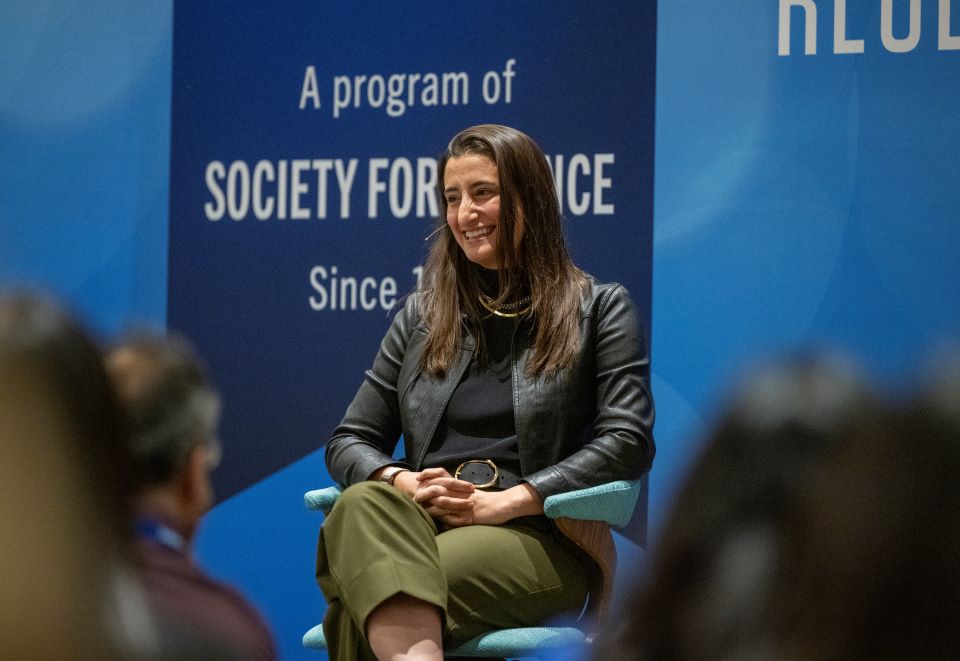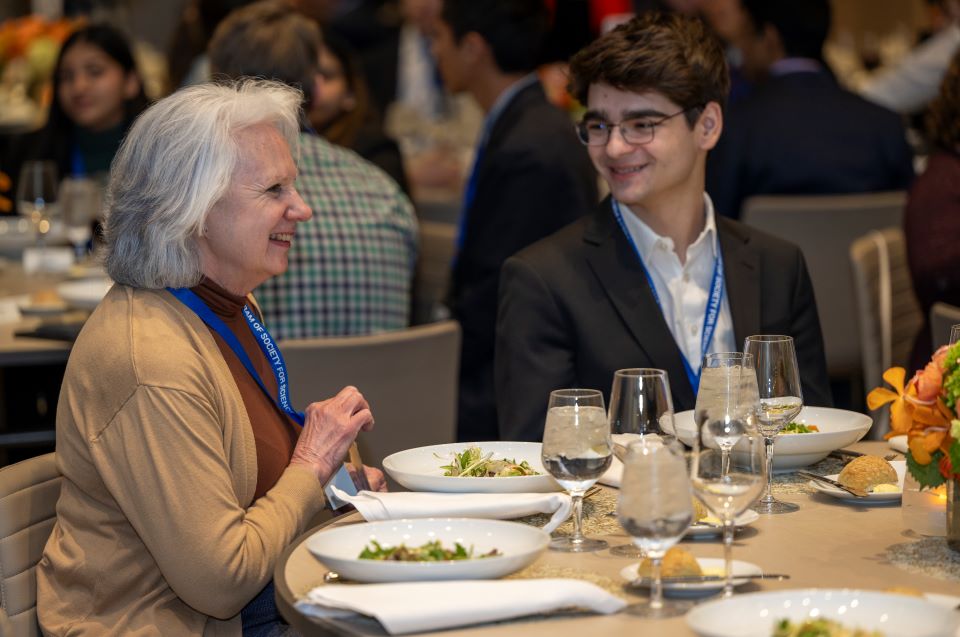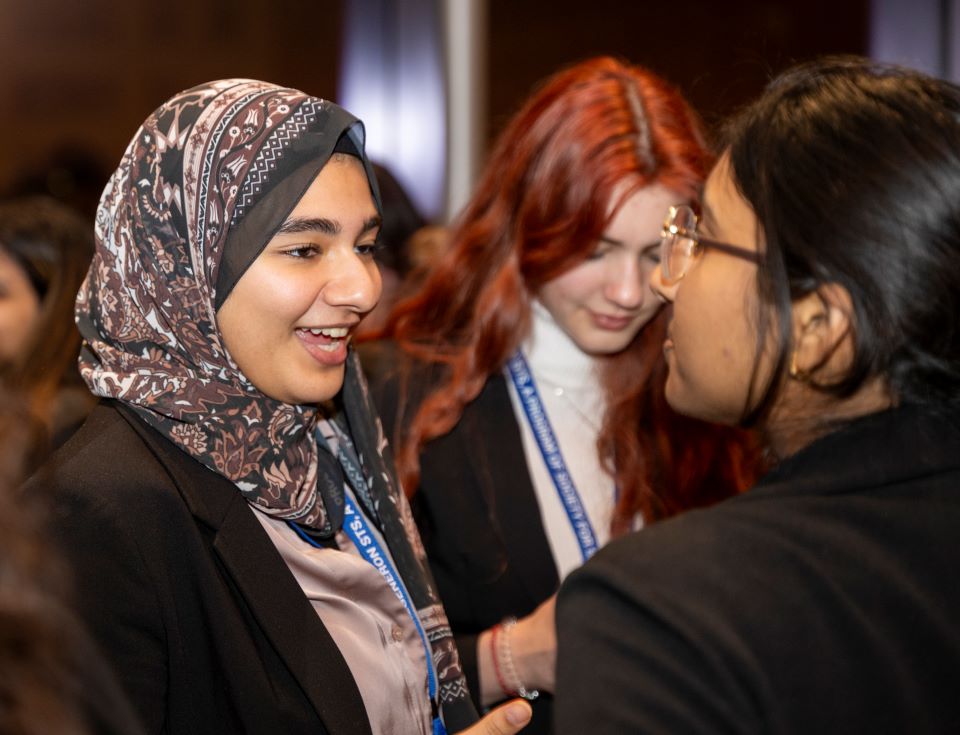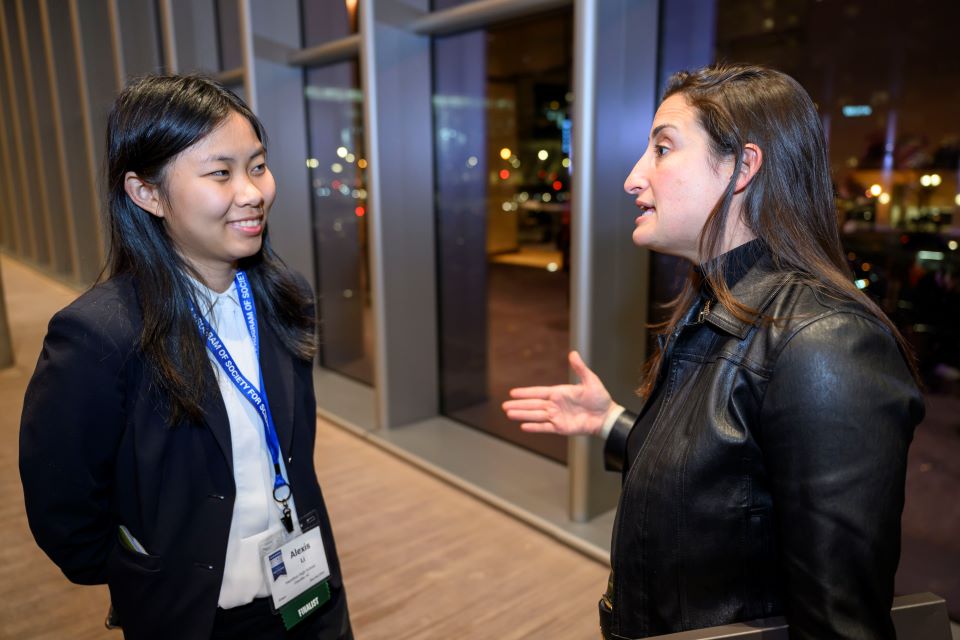Power of data and imagination: insights from Society Alum, Hayley Bay Barna

During this year’s Regeneron Science Talent Search (STS) finalists had the opportunity to hear from Hayley Bay Barna, a successful entrepreneur and investor who just so happens to be an alum of the 2001 Science Talent Search.
In 2010, Hayley founded Birchbox, a personalized beauty subscription box, widely recognized for revolutionizing the subscription services market. In 2016 she became a partner at the investment group which gave Birchbox its seed funding: First Round Capital.
Hayley now dedicates her time to assisting tech start-ups in their early stages, with a focus on increasing diversity in the venture ecosystem through seed-stage investing.
Read on to hear more of her insights and advice for this year’s Regeneron STS finalists.
Recently, I heard that 70% of female CEOs suffer from imposter syndrome. As someone who has found such success with Birchbox in a time when not many women were securing this type of funding, did you experience this, and if so, how did you overcome imposter syndrome?
The way I deal with imposter syndrome is to go back to what is true, to go back to what is objective and known. On a day-to-day basis it’s easy for me to think, “Oh, my partners didn’t like that company that I brought in for us to invest in, maybe I’m not good enough.”
But I go back to my historical approval rate in the partner meetings over the last eight years. Because I’m such a data-driven person, using those numbers as a touchstone whenever I’m feeling that I don’t have what it takes can help get me back on track.

What emerging trends or industries are you particularly excited about investing in, and what potential challenges do you foresee in these areas?
We have been investing more in climate. The way we think about it is that there can’t be a trade-off. We believe in creating a service, good or product that is better for the planet, without the consumer having to pay more or creating any other friction. That’s the hurdle: humans aren’t very good at long-term thinking or being selfless. However, I think that when the incentives are properly aligned, there can be solutions that benefit both the planet and make consumers feel good.
When it comes to founding a successful business, what was one of the major hurdles you faced?
I think the initial funding phase was the trickiest part. The first time my co-founder and I went to fundraise, we had developed a beta version of the business while we were still in school. We put together a great deck and tied it up with a bow, like, “Look what we did. Can you please give us money so that we can continue?”
It didn’t land. It was too static, and we had wasted a lot of time, frankly, pitching what we had done historically, before we realized that we needed to just create a feeling of inevitability and momentum.

How do you approach evaluating the potential of a startup, particularly in industries that are rapidly evolving?
We evaluate the team. Who is this? What have they done before? What are they motivated by? A lot of time is spent understanding the person. Then we go into the market, the market dynamics and what is the problem that needs to be solved? Then, the solution. How does this compare to what else is out there?
At the early stage, we’re not looking for incremental improvements. We’re looking for orders-of-magnitude better. To be clear, we get it wrong all the time. That’s how venture is built. We invest in dozens of companies because we know that half or more of those companies are going to fail.
Looking back over your career thus far, can you tell us about a time you had a promising investment, but it didn’t go well and why?
Things don’t go well for a lot of different reasons, but the thing that I learned the more I have been in the world of venture is that it’s often not the market or the product. It often comes down to these squishy things of people, interpersonal relationships and motivations.

How has being a woman in the world of venture capital impacted your experience? How have you persevered through any setbacks?
I think what makes for good investments is being able to see what could be different and having a different perspective than the consensus. What I’ve leaned into is understanding that my unique experience and my gender enable me to make investments that my partners wouldn’t have made if I was not part of the team. So, I don’t really treat it as adversity. I think who you are is part of your special skill set, and gender is a part of that.
Keen to follow their journey or aspire to be an STS finalist yourself? Sign up here for program updates and be on the lookout for the 2025 Regeneron Science Talent Search application, set to arrive on June 1, 2024. Check out highlights from this year’s competition here.


